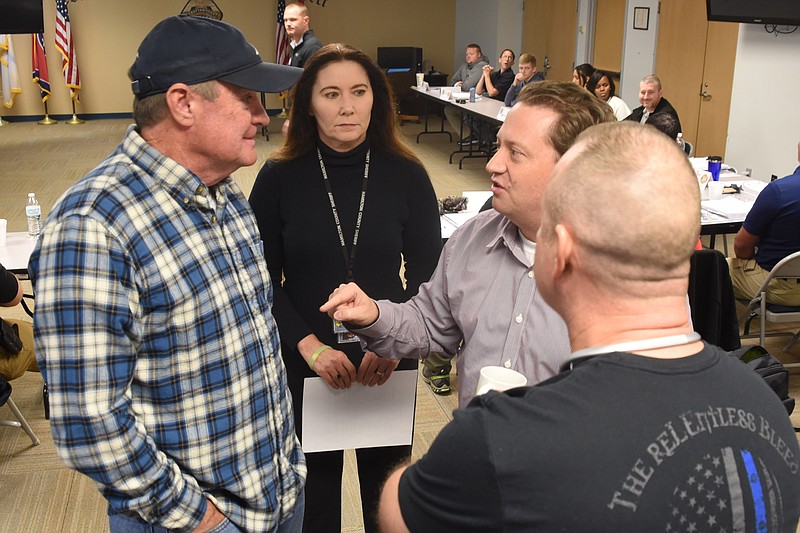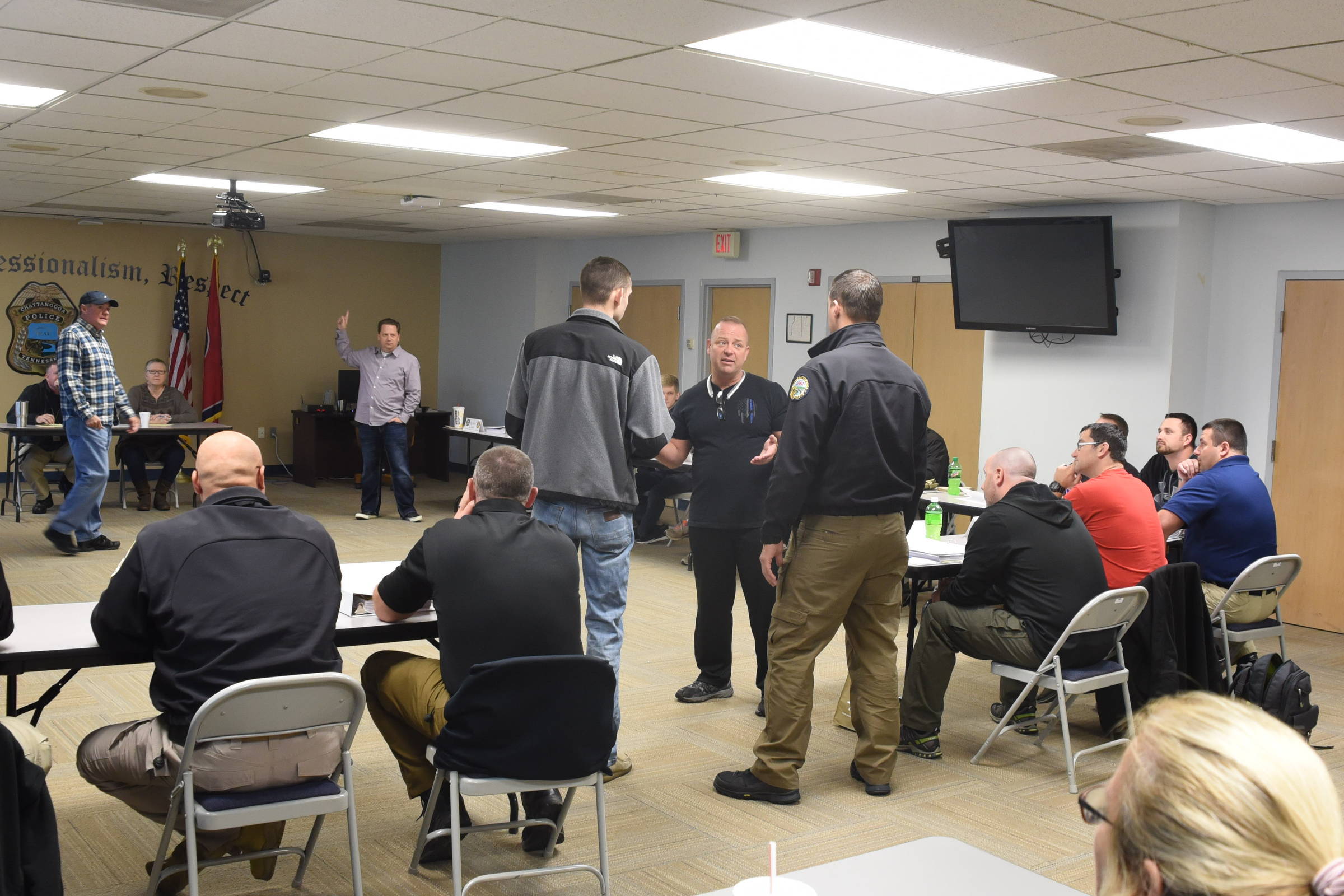The first thing officers did upon arrival was separate the man and woman they found screaming at each other.
They put a few yards of distance between the pair and started one-on-one conversations with each of them, working to quiet the situation and figure out what was happening. The subjects occasionally broke away to swear at each other, but after a minute officers had calmed them down enough to start piecing together the story.
Then a man sitting at a nearby table held up his hand and said, "That's enough."
The participants stopped the roleplay scenario, and one of the actors who had just been screaming herself hoarse high-fived the officer who had been practicing his de-escalation techniques. A ring of officers and deputies with the Chattanooga Police Department and Hamilton County Sheriff's Office sat around the edge of the room observing.
"All in all, I think you both did an excellent job. Both of you did well with gathering intel. Just remember, don't be afraid to put your hands up in front of you to keep that distance," the man said.
The officers were in the midst of Crisis Intervention Team Training, a program designed to equip local authorities for situations involving people with mental illnesses, developmental disabilities or intellectual disabilities. The program's goal is to ensure safety for both officers and the public they serve.
The program is made possible by a partnership among law enforcement agencies, mental health providers, hospital emergency departments and people with mental illnesses and their families.
"It's an eye-opening experience. You definitely learn how to talk to people differently," said Blake Gibson, a corrections officer. "They can be a danger to themselves and others."
He said he could recount at least a half dozen situations over the last two years in which the training he was now receiving could have been useful. By using a specific approach, he could make peaceful resolutions more likely.
"You can ask them what their name is. Tell them we're here to help," he said. "It helps keep us safe as officers, talking to someone and de-escalating a situation. We can get on their level and ask, 'OK, what's going on? What can we do?'"
Dave Buck, executive director of the Chattanooga Autism Center and one of the organizers of the practice session, said he was thrilled with the effort he'd seen local officers put into the training.
"There's been this understanding that the police want to be here. They want to help," he said. "That means a lot to the families I work with."
During the practice, Buck emphasized to officers the importance of patience and communication with individuals who might not be totally aware of a situation or their role in it. He said officers could be most effective when they make others feel listened to.
"Try practicing this technique, just try to repeat back their story in your own words and your own way. Then pause," he said after one exercise. "Try to reflect back and gain some rapport. You'll have a higher chance of them giving you the information you want and cooperating."
Some of the officers nodded in agreement and one scribbled a note on the sheet of paper in front of him. When the next pair of officers got up to practice, they again split the man and woman yelling at each other and one officer started a conversation with the woman.
"Ma'am, have a seat, have a seat. Tell me what's going on," he said.
Contact staff writer Emmett Gienapp at egienapp@timesfreepress.com or 423-757-6731. Follow him on Twitter @emmettgienapp.

